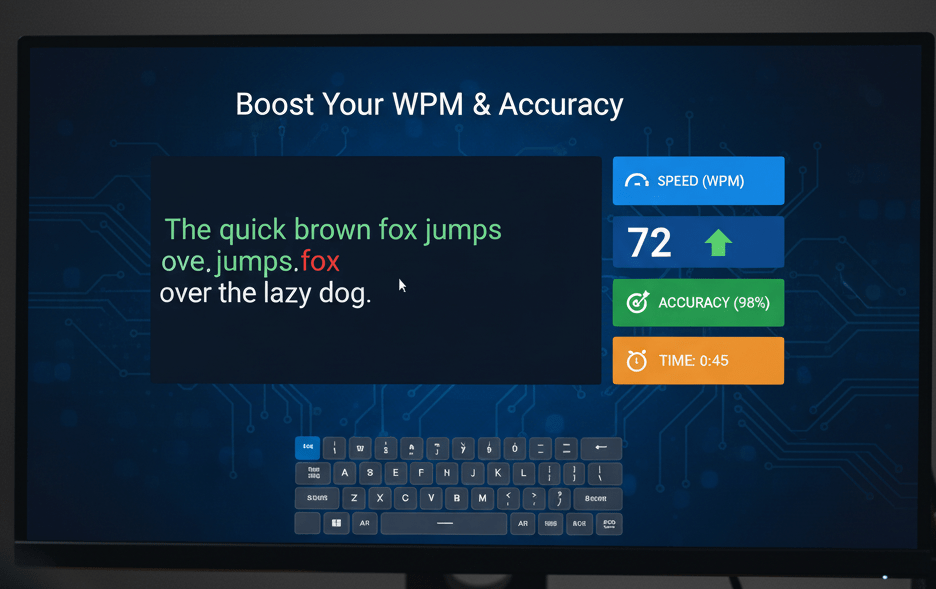Typing Careers & The Skills You Really Need
When you think of a "typing job," you might picture a secretary from an old movie. But today, typing is not a specialized skill for one job. It is a foundational skill for almost every high-paying, modern career. From programmers to doctors, everyone uses a keyboard.
Learning to type fast and accurately is an investment in your future. It makes you more productive, more efficient, and more hirable. Let's look at the careers where your typing skills can make you a star.
Careers Where Typing is King
For some jobs, your typing speed is your main qualification. For others, it is the secret tool that helps you get more done.
1. Data Entry Specialist
This is a classic typing job. A data entry specialist takes information from one place (like paper forms, invoices, or audio files) and types it into a database or spreadsheet. Speed is important, but accuracy is everything. A single mistake (like typing $100 instead of $1,000) can be a huge problem. These jobs often require a 10-key (number pad) test in addition to a standard WPM test.
2. Transcriptionist (Medical, Legal, General)
A transcriptionist listens to audio recordings and types out what they hear. This requires intense focus, excellent hearing, and very fast typing speeds (often 80+ WPM). Medical transcriptionists type doctor's notes. Legal transcriptionists type court hearings. It is a challenging but flexible job that often allows you to work from home.
3. Programmer / Software Developer
Many people are surprised by this one. Programmers spend a lot of time thinking, not typing. But when it is time to write code, being a fast touch typist is a massive advantage. You can get your ideas from your brain into the computer without friction. You do not have to break your concentration to look for the `(` or `&` key. Fast, accurate typing is a sign of a professional coder.
4. Writer, Editor, or Content Creator
This is my job! If you are a journalist, a blogger, a novelist, or an editor, your keyboard is your life. The faster you can type, the faster you can get your first draft finished. Just like for students, it lets you stay in a creative "flow state" without your slow fingers interrupting your ideas.
5. Customer Support Representative (Live Chat / Email)
More and more companies use live chat for customer support. A support agent who types at 70 WPM can handle two or three customer conversations at the same time. An agent who types at 30 WPM can only handle one. Fast typing directly equals higher productivity and better customer service.
Practice a Professional Skill
Let's take a quick test. The paragraph below is about professional skills. Click "Start" and type it as accurately as you can. In a job interview, they care more about your accuracy than your raw speed.
It's More Than Just WPM
Your WPM score is a great starting point. But in a real job, other skills matter just as much.
- Endurance: Can you type at 60 WPM for two minutes, or for eight hours? Professional typing requires stamina. This is why you should practice with 3-minute and 5-minute tests, not just 1-minute sprints.
- Accuracy: We said it before, but it is the most important part. A 98% accuracy score is the minimum for most serious typing jobs.
- Shortcut Mastery: A professional typist rarely touches their mouse. They use keyboard shortcuts. `Ctrl+C` (Copy), `Ctrl+V` (Paste), `Ctrl+X` (Cut), `Ctrl+S` (Save), `Ctrl+Z` (Undo), and `Ctrl+F` (Find) should be instant muscle memory.
Learning to type is not just for students. It is a core professional skill that will make you better, faster, and more valuable in any career you choose.
 Typing Practice Hub
Typing Practice Hub